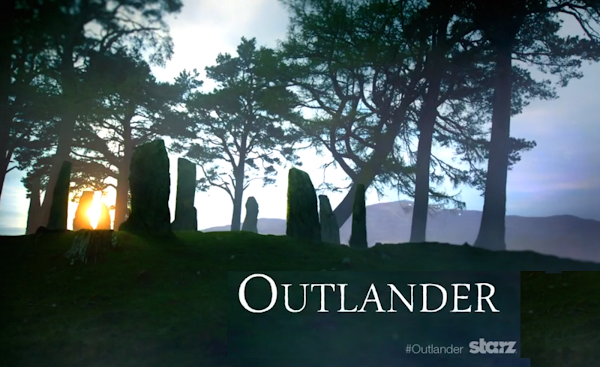OUTLANDER Links, Part IV: Native Americans
I know very little about this subject, but here are a few interesting links that I found. Please let me know if you have any more you'd like to share!
1) History of the Mohawk
http://www.kahnawakelonghouse.com/index.php?mid=2
Note what it says on the first page about "Kahnawake". If you've ever listened to the unabridged audio version of FIERY CROSS, you'll notice that toward the end, when young Ian returns from the Mohawk, the name of his tribe is pronounced kannawagga or gannawagga. I think the word Davina Porter is saying there is "Kahnawake", instead of "Kahnyen'kehaka" as it says in the book.
I also like the photo of a longhouse on this site.
2) Trail of Tears
This is a brief history of the forced relocation of the Cherokee, which was mentioned in ABOSAA.
"It grieves me to tell you," Jamie said, and meant it. "Sixty years from this time, the Tsalagi will be taken from their lands, removed to a new place. Many will die on this journey, so that the path they tread will be called..." He groped for the word for "tears", did not find it, and ended, "the trail where they wept."
(From A Breath of Snow and Ashes by Diana Gabaldon, Chapter 43 ("Displaced Persons"). Copyright© 2005 by Diana Gabaldon. All rights reserved.)
I found it interesting that Jamie's translation of the phrase, "the trail where they wept", is the same as the phrase used on this site.
3) Tuscarora Indians in North Carolina
Here's some historical information about the Tuscarora Indians in 18th century North Carolina, describing how land was set aside for the exclusive use of the Tuscarora. (Could this be the "Treaty Line" referred to in ABOSAA? I'm not sure.)
4) Interior of a longhouse

This picture looks exactly like what Diana described in DRUMS OF AUTUMN, don't you think?
Five hearths burned, down the length of the house, each with its own smokehole, and the far wall was divided into cubicles, one for each couple or family, with a low, wide shelf for sleeping and space beneath for storage.
(From Drums of Autumn by Diana Gabaldon, chapter 53 ("Blame"). Copyright© 1997 by Diana Gabaldon. All rights reserved.)
5) Interactions between Indians and Scottish settlers in Colonial North Carolina
This is an article that appeared in my local newspaper earlier this year, about an archaeological dig near Charlotte, NC, that has uncovered the remains of a Catawba Indian village, circa 1755-59. I was fascinated to learn that a genuine Scottish dirk had been found at the site.
Note that the article says this particular band of Indians fought on the British side in Quebec in 1759. By coincidence, that's precisely where Lord John will be heading in his next adventure, the upcoming story "Custom of the Army".
If you find these links interesting, check out my previous "OUTLANDER Links" blog entries:
OUTLANDER Links, Part 14: 18th Century Clothing
OUTLANDER Links, Part 13: Plants and Herbs
OUTLANDER Links, Part 12: Standing Stones
OUTLANDER Links, Part 11: Science and Technology
OUTLANDER Links, Part 10: Weaponry
OUTLANDER Links, Part 9: Historical Events
OUTLANDER Links, Part 8: 18th Century Medicine
OUTLANDER Links, Part VII: Gemstones
OUTLANDER Links, Part VI: Wildlife
OUTLANDER Links, Part V: Castles and Palaces
OUTLANDER Links, Part III: All Things Scottish
OUTLANDER Links, Part II: Colonial North Carolina
OUTLANDER Links, Part I: Culloden
What Do These Things Look Like?







A nice summary. I have been so sad that I haven't got time to explore these things in more detail.
The whole episode in DOA with the Bear Wrestling was awesome. Among many highlights was Jamie's realization that the Indians were actually much closer to his values than he had thought.
Your story of Kahnyen'kehaka and Kahnawake was also interesting.
However, I didn't find anywhere that the former should be pronounced "Gahnyen'gehaga", if K = G.
Well, I am DEFINITELY not an expert on pronunciation of Mohawk words <g>, but here is a link that someone on Compuserve provided for me back in 2007:
http://www.native-languages.org/mohawk_guide.htm
Karen